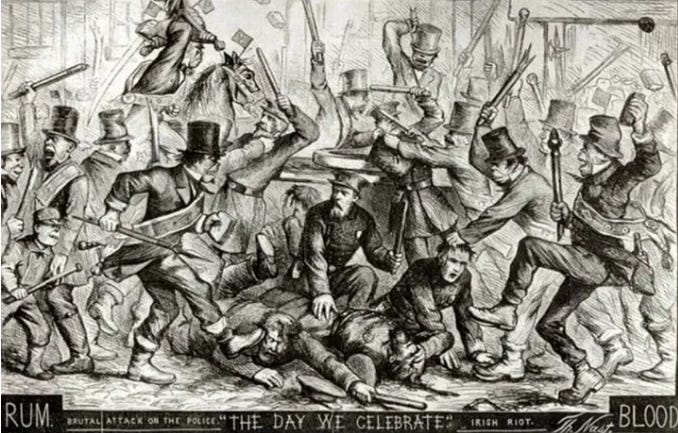The Narcissism Of The Slight Difference
The 93% issue -- we're much more similar than we admit, but still love to scrap.
Ultimately, this newsletter is paid, because sh*t is expensive and daddy likes fancy cheese and crackers. But that’s not your specific problem, ‘tis mine. What you can do, option-wise, is below:
Subscribe for a couple of bucks per month.
Read as much as you can before the paywall and share if you want.
Delete it without complaining.
Complain heavily about receiving too much email, especially after Thanksgiving, and flail about wildly.
The last bullet kind of makes you a total asshole. The other three are all good.
Onward and upward, kids.
Content commences now:
I think I had heard of this Freudian term before, but I just saw it mentioned again in a Mark Manson newsletter.
To frame this up, there’s a study referenced that aims to find the similarities between people, which is very different than how America and the world feel these days, when everything is about difference. The study was large (86,000+ people) and international, and ultimately, here’s your takeaway:
The researchers then cross-analyzed the data in every way they could to determine which groups of people around the world are the most similar and dissimilar. In all, they ran over 168,000 comparisons and found that, on average, people’s values were 93.3% the same. Of all of the comparisons, only 0.66% of them produced results where populations were more dissimilar in their values than they were similar.
So, basically we’re 93% similar in what we want from life, our value structure, etc. But it feels, every day, like the other 7% is driving everything.
So is this about media? Social media?
It’s about lots of things. The way media is now — which is less journalism and more cross-aisle screaming and dog-whistling — certainly contributes. The way social media is, which is basically comparison on steroids, also contributes. As Manson puts it in his newsletter: “We take our common humanity for granted and instead obsess over subtle divergences in culture and character as if they are world-ending.”Would agree as well.
In general, our minds are already primed to loathe any dissimilarities we spot between ourselves and others. The internet simply gives us millions and millions more dissimilarities to spot.
So that’s part of it.
One other area, potentially less discussed, is the impact of the rise of nationalistic leaders who “say whatever they think” and “have no filter.” There’s been research post-2016 USA election that found:
Keep reading with a 7-day free trial
Subscribe to What Is Even Happening? to keep reading this post and get 7 days of free access to the full post archives.




